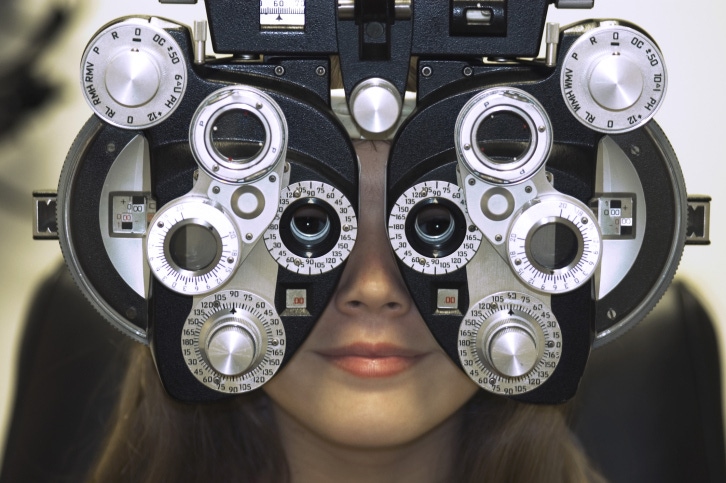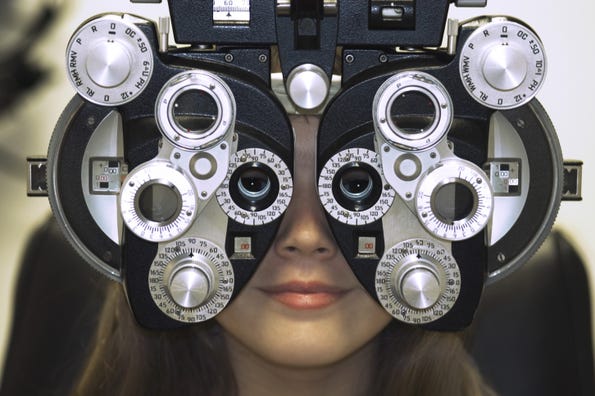It's National Eye Exam month—I'll go if you do
August 14, 2013

 Among my many long overdue to-do's, I've watched a visit to the eye doctor creep its way toward the top over the years. That's because I haven't been since, oh, probably fifth or sixth grade.
Among my many long overdue to-do's, I've watched a visit to the eye doctor creep its way toward the top over the years. That's because I haven't been since, oh, probably fifth or sixth grade.
But hadn't I endured enough by then? Having worn the most offensively big, thick, pink glasses envision-able to help me out with my cross-eyed, far-sided freakazoid five-year-old self, I'd visited the eye doctor more times by age 12 than I'd been invited to birthday parties.
Suddenly, my eyes… corrected? I still think the whole glasses-faced elementary experience was a total character-building sham; unlike that sunburn on my eyeball I endured while snowboarding a few years later and still have to this day—shoulda seen the ophthalmologist for that one back then and/or sometime in the 17 years since.
Sight, out of mind
Being a discretionary doctor visit from the ranks of the dermatologist or that psych eval from too much childhood character building, my eyes are rarely on my mind. Probably because, well, I can see. Be that as it may, the American Academy of Ophthalmologists recommends everyone get a comprehensive eye exam, with a frequency depending on one's age, race, past ocular history, medical history, family history of eye disease and types of symptoms or ocular findings encountered, according to a Healing The Eye & Wellness Center release.
“An eye exam is so important because it can tell your doctor about your overall health,” affirms Dr. Edward Kondrot, ophthalmologist and founder of Healing the Eye & Wellness Center and president of the Arizona Homeopathic and Integrative Medical Association. “Regular eye exams can do more than just reading a chart, they can save your eyesight.”
I fall into the "every two to four years" category, that is, assuming you ignore the "haven't been in almost 20 years" immediacy.
On the center's site, Dr. Kondrot sells supplements designed to address eye conditions from macular degeneration, glaucoma and cataracts to dry eyes. According to Kondrot, three keys for his vitamin line are:
All essential natural ingredients for the eye
Digestive enzymes, probiotics and betaine
He also directs readers to natural retail, where well-informed staff will be able to show the way to good eye health choices. Part of those good choices, Kondrot asserts, include a trip to the produce aisle.
"There is NO vitamin combination that can replace a good, healthy diet. I am a big advocate of colorful fruits and vegetables, organic and raw to give you the best nutrition for your eyes. Healthy food is our best medicine," he goes on. "Good health and vision begin here! There is NO VITAMIN shortcut to good health. We need to obtain all of vitamins and nutrients from our food."
Next on the checklist of utmost importance for eye health? Nutrient absorption. "The biggest problem I see isn’t people not taking the right vitamins, but that the right vitamins are not absorbed into the body," he reports.
Third, mineral deficiency and heavy metal toxicity. "Once again, this can be traced to a poor diet, eating non-organic food that is deficient in essential minerals and laden with toxins."
Encourage your customers to see the eye doctor this month. Fine, I'll have my peepers checked, too... soon, promise. In the meantime, I plan to heed this sage advice, along with Dr. Kondrot's 6 eye health essentials.
You May Also Like


